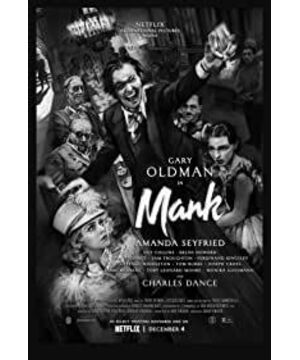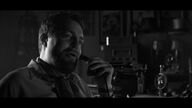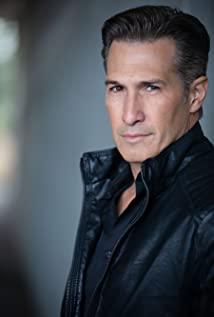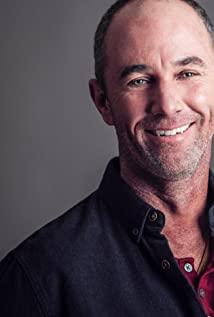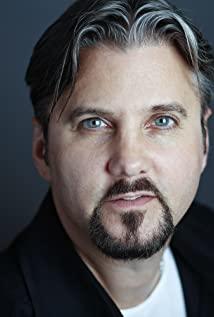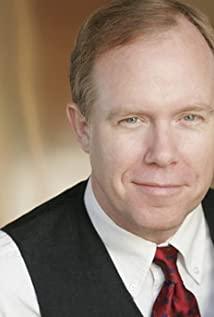Author: Brent Lang
"Mank" is a fascinating story about the brilliant but troublesome artist behind "Citizen Kane", and "Citizen Kane" has always been considered the greatest movie of all time.
No, it's not about director Orson Wells. Instead, it took Herman J. Mankiewicz, the hired alcoholic screenwriter, who was responsible for the film’s revolutionary nonlinear narrative structure and the corrosive description of wealth and power, and pushed it to The center of the picture.
"He is one of those voices that point us in the direction," said David Fincher, who worked for nearly 30 years to make "Mank" into a movie. "I hope that people will be very happy to watch a wise man of the previous generation. He was forgotten in some ways and never got the reward he deserved."
Netflix's "Mank", which will premiere on December 4, is also likely to re-ignite a fierce debate around the concept of directorism. If the film is really the medium of the director, who is the credit for a masterpiece? This is a controversy about the identity of the screenwriter, almost since the release of "Citizen Kane" in 1941, this controversy has been around it. To a large extent this is because Wells is not only the star of the movie: he also directed, produced and co-written the movie, and he is just a 24-year-old genius.
Others have different opinions on the extent of Wells' contribution. As Pauline Kyle’s controversial article "The Way to Cultivation of Kane" published in 1971 and now "Mank" showed, "Citizen Kane" was largely influenced by Mankiewicz. Friendship with William Randolph Hirst (the newspaper tycoon who inspired Kane), and the influence of his personal experience with the media and politics.
You might think that Vinci is a respected visual stylist, his perfectionism can drive the film crew and actors to the point of collapse. He should be a proponent of the great man theory, and this is also the core of directorism-some people are so otherworldly, they seep into every shot or rhythm of the film. But if you think this way, you are wrong.
"I don't know any filmmaker who cares about whether he is a director," said the 58-year-old director. "'Unshirkable' has always been my philosophy. I think filmmaking is far more like a blasting game than neurosurgery. When it can be implemented according to the ideas in your mind, it is a miracle. But most In case, it will not."
It is also a miracle that a unique project like "Mank" can get the green light. In fact, this movie has almost never been put on the screen. This project was written by the director’s father, Jack Finch, and was originally supposed to be made into a movie by Polycrystalline in the 1990s. Kevin Spacey, who once considered a deep sexual harassment scandal, takes the lead role, and Judy Foster plays Hirst's long-term mistress Marion Davis. However, Finch insisted that the story needs to be filmed in black and white, as a tribute to Greg Tolan's expressionist cinematography in "Citizen Kane," however, the studio refused.
"Because of various very stupid templating factors and related to the export transaction in Central America, Polycrystalline backed down." Finch recalled: "We were asked to shoot the movie in color, then make corrections, and make a black and white version. . This is totally unfeasible."
So Finch moved to other projects, won Oscar nominations for "Social Network" and "The Curious Case of Benjamin Button", and adapted the best-selling books such as "The Lost Lover" into feature films. But "Mank" resurfaced after hitting a wall when he was creating "Psychological Hunter" (a product of Netflix, about the FBI's early efforts to understand serial killers). The play was supported by critics, but failed to achieve popular success. In addition, the creation of the second season was also a frustrating experience for Vinci. He had hoped to withdraw from the day-to-day shooting of this project. But after dismissing the original series producer and discarding all the scripts, he had to devote himself to the project, forcing him to move to Pittsburgh during the filming process.
"I need some time to leave," Fincher said, adding that the series is likely to be stopped indefinitely. "This is an expensive series. It has a very enthusiastic audience, but we never got the volume that can balance the cost."
In a meeting with Netflix’s chief content officer and co-CEO Ted Sarandos and recently resigned vice president of original content Cindy Holland, Fincher admitted that he was not in a hurry to "spend another two years in the slot." "In preparation for the third season of "Psycho Hunter". Sarandos raised the question of what movie project Vinci wanted to make. To the director's surprise, Netflix not only signed his "Mank", but also agreed to let him shoot in black and white.
"We have no qualms about making it," insisted Scott Stuber, vice president of original film at Netflix. "Because he is David Fincher. He is one of the best directors. We know how long he has been working in this area, how long he has thought about it, and we also know how personal this project is for him." We are very excited"
In November 2019, the movie finally started, with Gary Oldman as Mankiewicz, Amanda Seyfried as Davis, and Charles Dans as Hearst. When the film started, a key creative task was not present. Jack Finch died in 2003 at the age of 72, more than ten years before the shooting of "Mank" began. He was the director of the San Francisco bureau of "Life" magazine and was an avid movie fan. He instilled in Finch the aesthetics of movies and took him to watch "2001: A Space Odyssey" and "2001: A Space Odyssey" in many theaters near their home in the Bay Area. Back Window, yes, and Citizen Kane. "
"When I was 8 years old, I decided that film was my life's work, so my dad was the source of this information. He told me,'You must watch this or that movie'," Finch said. He started his own MV director career, including Madonna's "Express Yourself" in 1989 and "Vogue" two years later, and finally made the feature-length film "Alien 3" in 1992.
When Jack Fincher retired from the press, he began to write scripts. One involves Howard Hughes, and the other is about the artist Margaret Keane and her plagiarist husband Walter. It was the latter story that became the story of Tim Burton’s 2014 film "Big Eyes." Shoot inspiration. But what aroused his son's interest was the script he wrote about "Citizen Kane", although he felt that his initial efforts did not achieve the goal. His main point is that Mankiewicz decided to get the production credit of "Citizen Kane" after the submission, and it has nothing to do with the composition of this legendary script.
"He showed me this first draft that has been abandoned," Finch said. "I told him that it seemed like some sour grapes, and I don't think people really care who got the signature. This show did not appeal to me."
But the subsequent script is more in line with the director's appetite. They focused on Mankiewicz and his backstory as a member of the famous Algonquin Roundtable literary circle, and his move to the West as a script consultant for a film company to find quick money. This is an external character that Vinci can immerse in. Gradually, the complicated relationship between Mankiewicz and Hearst has also been enriched. Jack Finch added more scenes. It was set in the luxurious party of the tycoon's Saint Simon. The screenwriter was a very favored guest. He His insight was admirable, but he was eventually kicked out because of his alcoholism out of control. Vinci did not express it, but the core theme of "Mank" must have resonated with him as a filmmaker-after all, the film is about the training of an elusive pursuit of perfection, and it is often frustrating. Finch once forced Robert Downey Jr. to take dozens of shots in a scene in "Zodiac", and made the actor jokingly compare this experience to being in the Gulag prison. Vinci was obviously very familiar with this experience.
"He is a very difficult task master," said Peter Mavromets, co-producer of "Mank", who has been working with Vinci since "Mind Game" in 1997. "He is very demanding. He pushes around, but once you reach the end, it will be much better than when you started. That's why people who work with him will do this again and again."
At first, Vinci was not optimistic about a key sub-shot in his father's script. "Mank" dramatizes the 1934 California governor campaign between Frank Merian and Social Democrat Upton Sinclair. In this campaign, Hollywood producer Owen Talberg played At the request of Louis B. Meyer, he created some of the earliest negative advertisements. The head of MGM was angry at Sinclair's threat to tax the film company and his interest in supporting state-run film companies. So Talberg tapped MGM's talents and produced a short film demonizing Sinclair. In the movie, Mankiewicz was very frightened when he saw big companies put power on the scale, which made his friendship with Hirst and Meyer strained. In the late 1990s, when Fox News was still in its infancy and Donald Trump was a real estate developer, Finch did not see this.
"I was thinking,'I don't understand,'" Finch said: "This is weird, this kind of fake news idea. I was convinced at the time, "Who would really care if something evil happened in 1934? ?"
In 2020, the director admitted that some of the content in the film is likely to resonate most strongly with audiences who have just experienced another tragic election.
"When Jack just finished the script, it was self-righteous - and 25 years later, it was inflammatory," Finch said. "Those who ignore history are destined to repeat the same mistakes."
Vinci used a digital camera to produce "Mank", but the director and his creative team worked hard to make the picture look like film texture through digital scratches, making it feel like it was shot with celluloid (old film).
"If you want a very consistent result, film is not a particularly good medium," said "Mank" photographer Eric Messerschmidt. "The decision is very clear, and the use of digital photography has never even been a problem in our minds."
Vinci also let people design the sound effects to include the crackling sound that appeared in the movies of World War II.
"He wants the movie to be like you are in a warehouse, seeing "Citizen Kane" and "Mank" next to it," said Donald Graham Burt, the film's graphic designer. "He wanted it to look like something made in that era. He didn't want the audience to have a clear idea of when we were shooting."
Vinci is extremely insistent on accuracy. If Bert took out a typewriter to be used in a scene, the director would ask him when it was made, whether it was used in the office or at home, all of which is to be faithful to that era.
This did not extend to Oldman's role in Mankiewicz. The actor, who was 61 years old at the time of filming, was 20 years older than Mankiewicz when he wrote "Citizen Kane," and looked nothing like the pale, weak and bald screenwriter. In the past, Oldman mainly relied on makeup and costumes to perform all the roles from Winston Churchill to Earl Dracula. He wanted to remove the hairline and make a fake nose.
"I said,'No, we have to watch you become this person, there can be no artificial traces between us and you,'" Finch said. "I need an actor who walks into the room and everyone will say,'This is this person.' You need an actor who is an actor. If you are casting a cast by height and hairline, you miss the barn side ."
"Mank" represents a departure from Vinci's previous works. He is best known for digging the darkest corners of the soul in works such as "The Twelve House" and "The Seven Deadly Sins". There is no horrible crime scene, but a gag about the Marx brothers grilling hot dogs in Talberg’s fireplace. And Mankiewicz, drinking bourbon while uttering golden words, looks like Oscar Wilder of the Jazz Age broke ground. This story has a lot of humor. "Interesting" is not an adjective that you would think of when you consider Vinci's dark work, but the director's long-term collaborator disagrees.
"I think there is a kind of wisdom in all of David's films," said Kirk Baxter, the editor of "Mank". "David is a very interesting person."
Vinci was attracted by Mankiewicz's true feelings and his characteristic of using jokes as a defense mechanism against an unjust world. He was also attracted by Mankiewicz and other early screenwriters, such as Ben Hurt and Edwin Jasdes Mayer, who played key roles in helping the film industry move from the silent film era to the sound film. The wisdom and sophistication they have honed in East Coast publications such as "The New Yorker" are used on the big screen to create a new way of dialogue. The movie will change from then on.
Nowadays, the entertainment industry is undergoing a similar and equally significant transformation. The emergence of streaming media services such as Netflix has begun to eclipse traditional theater publishers. Some directors who value the ability of their films to be shown on the wide screen are lamenting this change. Vinci expressed his support.
"Let's be realistic, the screening experience is not the brightest part of it right now," Finch said. He pointed out that in recent years, the screens of home theaters have gradually become larger, making the difference in the form of expression between theaters and televisions less obvious.
In addition, he believes that it is necessary not to rely solely on box office returns for life and death. Some of his beloved movies, such as "Zodiac" and "Fight Club", had a miserable box office when they were released, but were rediscovered on cable TV or home entertainment platforms.
"I have never been happier working in one place than at Netflix," Finch said. "They are building a database. This is a good thing. Movies have a platform for existence. You don't have to put them into spandex summer or distressed winter (referring to summer or Christmas files) . This is a way to learn from all kinds of movies. Platform: It can be a dark, sinister German movie, or a bizarre Israeli spy drama. They want it all."
With Hollywood’s obsession with superheroes, demanding directors such as Vinci, Martin Scorsese ("The Irishman") and Spike Lee ("The Five") have migrated to Netflix. Seek creative freedom and financial support.
"I know I am not having a picnic," Finch said. "What they want are self-employed people. What they want is people who want to rip off their skin, try different things, and work hard to pay taxes."
In November of this year, Netflix will screen "Mank" in movie theaters that are still open during the COVID-19 pandemic, but the company admits that the number of screenings will be a declining number. It also plans to carry out extensive Oscar promotional activities.
"This is a major achievement in filmmaking," Stuber said. "We really trust this movie, and we will work very hard to recommend it in every field."
Even though "Mank" looks at Hollywood's past, it is also helping to lead a new wave of films made about other classic films. Ben Affleck will direct "The Grand Farewell", a film about the behind-the-scenes story of "Chinatown", and Barry Levinson and Oscar Isaac are collaborating on a film about the turbulent creation of "The Godfather" movie. Vinci joked that he is creating a new type that will soon have a corresponding category on Netflix.
"There are too many great stories about filmmaking, if there is a special genre to put them," Finch said. "Will there be such a trend:'What about the production of "Stunt Double"?' No, but I am very interested in these two ideas. I respect and respect Ben Affleck and Barry, so let us See what they do."
As for "Mank", in Finch's career, in order to turn the story into reality, he has worked for most of his life, even a veteran like Finch, feel that it is time to leave the editing room.
"I only want to sleep in the first half of the year." Finch said: "One day my wife said to me,'You have been thinking too long on this film.'"
Original link:
Magnificent Obsession: David Fincher on His Three-Decade Quest to Bring'Mank' to Life
View more about Mank reviews


